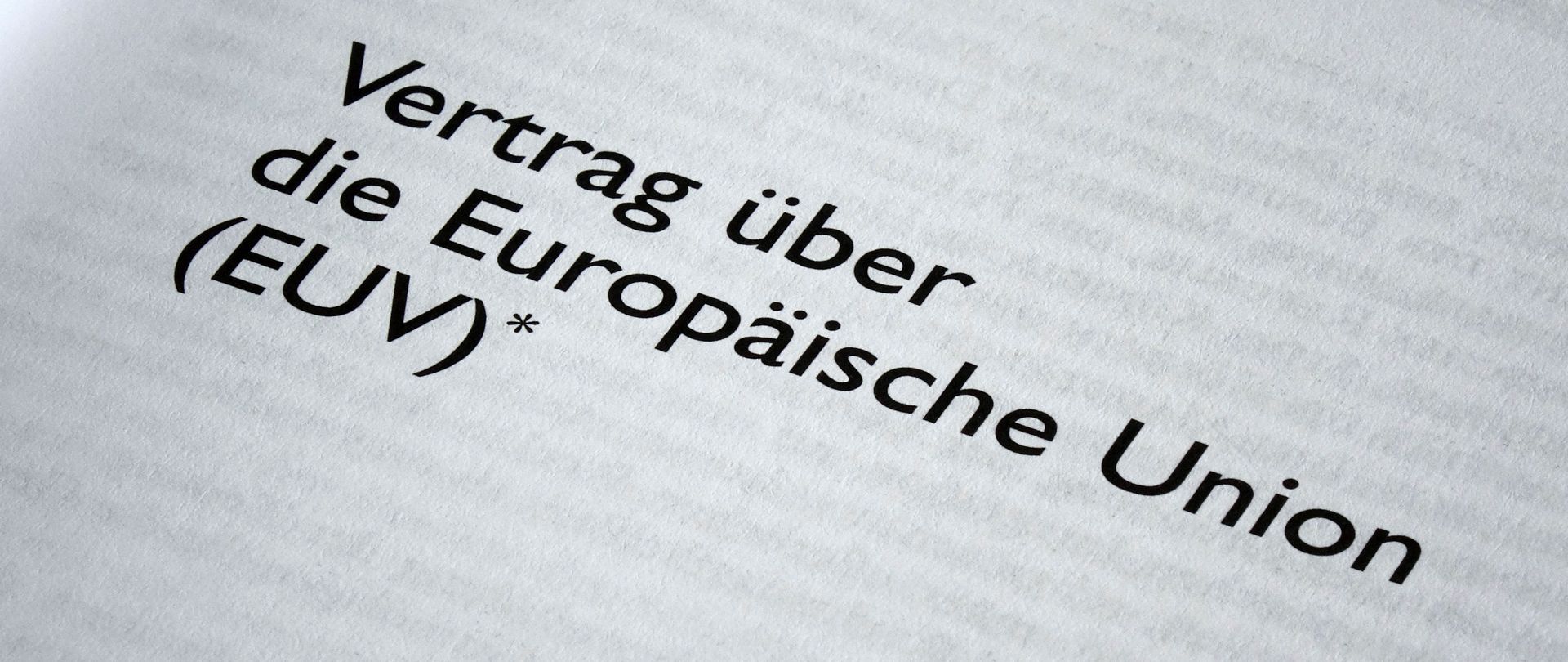
»Treaty on European Union« written on the first page of a brochure on the »Treaty of Lisbon«
© picture alliance / dpa | Sascha Steinach

»Treaty on European Union« written on the first page of a brochure on the »Treaty of Lisbon«
© picture alliance / dpa | Sascha Steinach
On the whole, the EU27’s CFSP has so far shown a very limited capacity to act. The unanimity requirement for decisions in the European Council and in the Council of the European Union (as defined by Article 31 Paragraph 1 of TEU) plays an important role here. A constructive abstention is possible, but has only been employed once to date when Cyprus abstained in the 2008 Council vote on an EU civilian mission for Kosovo. The reluctance to use constructive abstentions to enable the EU to act in a united way reflects national reservations. These reservations make it difficult for the EU to bring its influence to bear on issues of global order in line with European interests and objectives. The EU’s strategic capacity to act is needed above all in crisis diplomacy and in crisis management in the countries neighbouring the EU to the south and east – i.e. the eastern Mediterranean, Libya, Syria, Ukraine (Minsk Process) and Belarus.
The discussion about CFSP reform is oscillating between two poles: on the one side, there is the idea to distance European foreign and security policy from EU structures and thus give the governments of member states more room to manoeuvre. On the other side, there are efforts to bring the CFSP under the supranational roof of the EU; this would involve policy decisions being initiated by the European Commission and decided upon by the Council and Parliament with qualified majorities. A middle course would be to permit qualified majority decisions in the European Council, without the Commission and Parliament being involved. Other voices are calling for greater use of flexibility in foreign and security policy or for ad-hoc decisions taken either by coalitions of willing states or contact groups built around specific interests or by a permanent European Security Council. Reform of the CFSP will be an important topic at the Conference on the Future of Europe initiated by the European Commission and European Parliament. The results of this conference are expected by 2022.
A group of EU member states want to change from unanimity to qualified majority voting in the Common Foreign and Security Policy. A more efficient CFSP should be implemented in a step-by-step approach overseen by the European Parliament, argues Annegret Bendiek.
Contribution to a Research Paper 2021/RP 10, 13.12.2021, 125 Pages, pp. 65–68
Opportunities and Risks of European Self-Defence
doi:10.18449/2021RP01
Can the EU balance internal recovery with geopolitical influence and lift its gaze towards the international sphere?
A Challenge to the Rule of Law
doi:10.18449/2019RP12